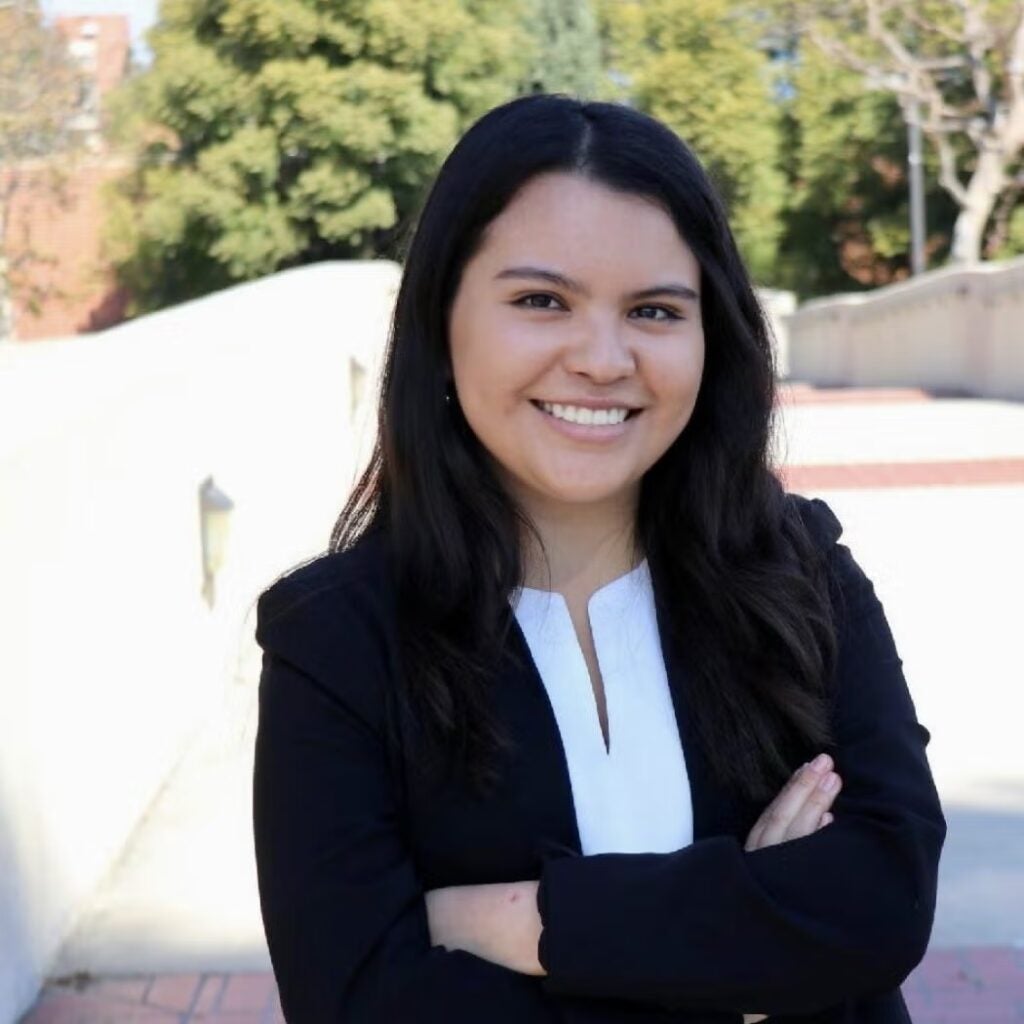Daniella Hernandez
Global Human Development Student
Daniella obtained her B.A. in political science with an emphasis on global politics from California State University, Long Beach in 2020. After graduating, she interned for the Mexico Institute at the Woodrow Wilson Center in Washington, D.C., where she worked on various projects related to Mexico’s security and rule of law, economics, and gender-based violence. In Spring 2021, she became a program associate at a nonprofit, where she worked on programs that increased transparency in local and national governments, bolstered the capabilities of youth leaders to help them better advocate for their interests to elected officials, and increased cooperation and capacity building between congressmembers in Peru and Colombia.
Before joining GHD, Daniella was a senior program associate for the Latin America and Caribbean division at Chemonics International, where she supported two USAID-funded projects focused on violence prevention and reduction, as well as addressing enforced disappearances in Mexico. Her favorite aspect of working in international development is meeting the people who have been empowered from the projects.
It is her desire to analyze and discover the root causes of issues that first drew Daniella to international relations and development. During her field experience, Daniella noticed an interesting trend: While global policy always has local reactions, she found that local reactions can just as easily have global reactions — but global reactions are the most recognized.
In Daniella’s free time, she enjoys traveling and spending time with her family and dog.
Summer internship
Over the summer, Daniella interned for the Regional Migrant Response Plan (MRP), a critical initiative that is spearheaded by the International Organization for Migration (IOM) in Nairobi, Kenya. The MRP aims to provide immediate life-saving assistance to migrants and host communities, provide protection assistance, strengthen access to sustainable return and reintegration, and build evidence and partnerships to strengthen responses along the Southern and Eastern migration routes. One of the key highlights of Daniella’s work was contributing to a gender analysis that explored the gender dynamics along the East Africa migration route, as well as the drivers of migration for diverse vulnerable groups. This gender analysis will be instrumental in creating evidence-based interventions that will best address the needs of vulnerable migrants, in particular women and children. This experience reaffirmed Daniella’s interest in human rights, especially within the field of migration.
